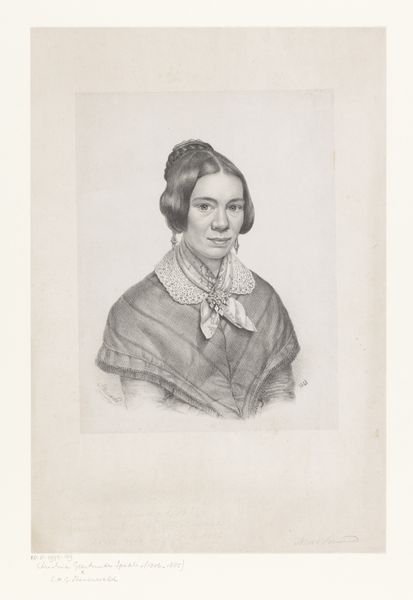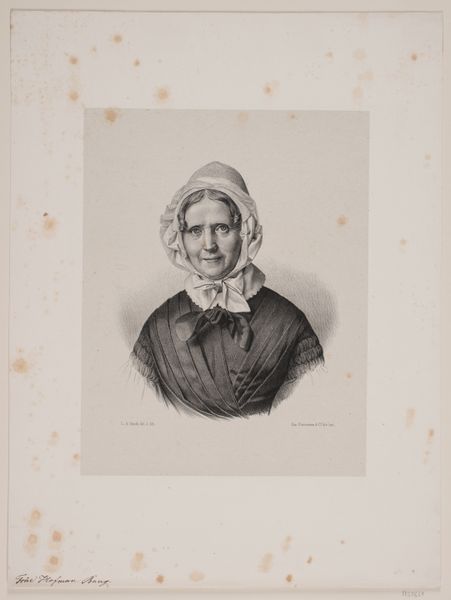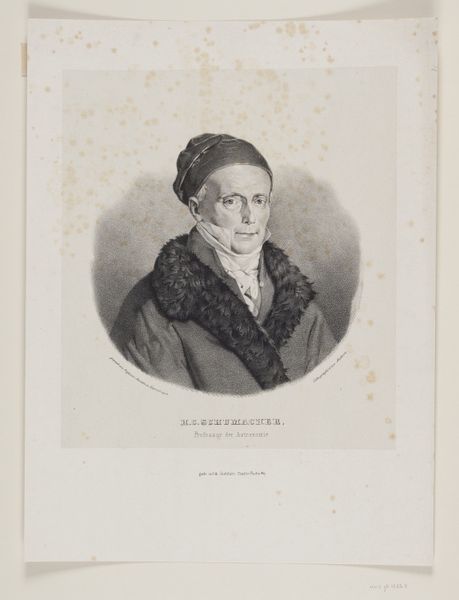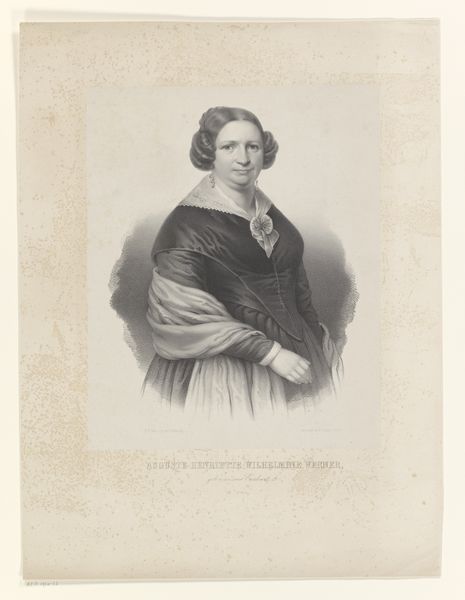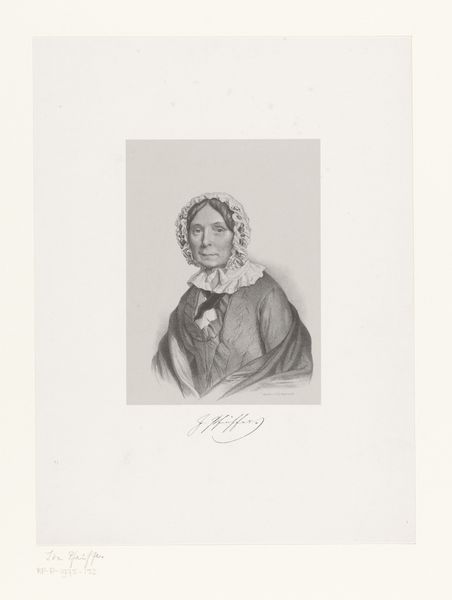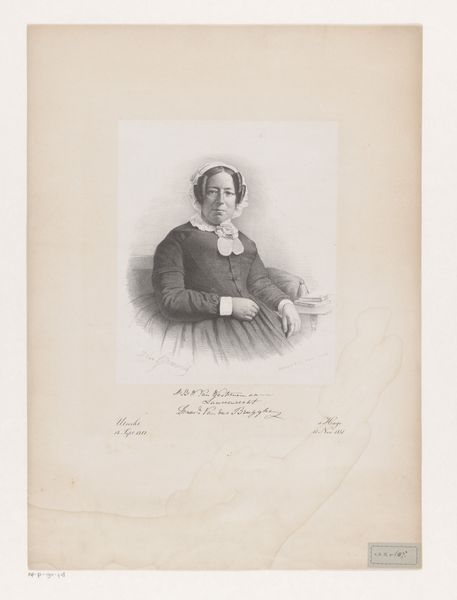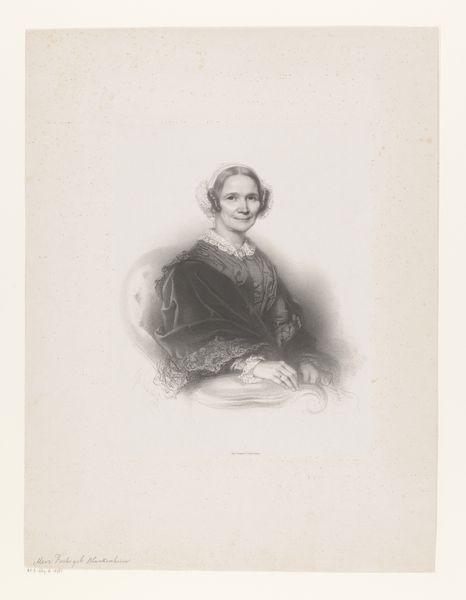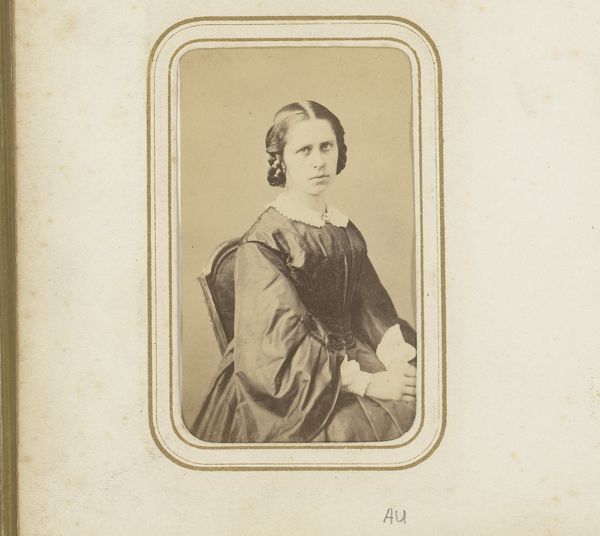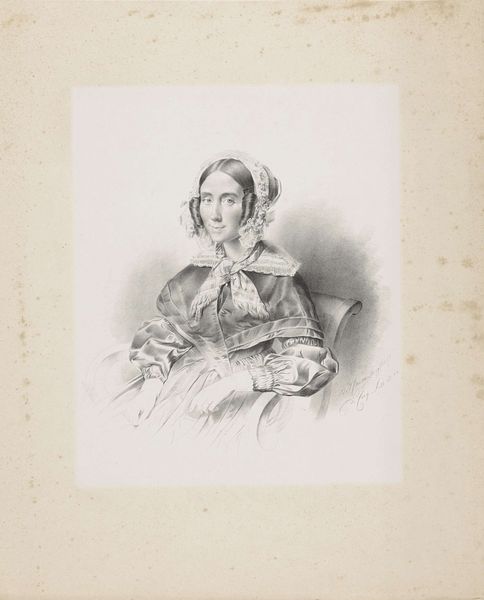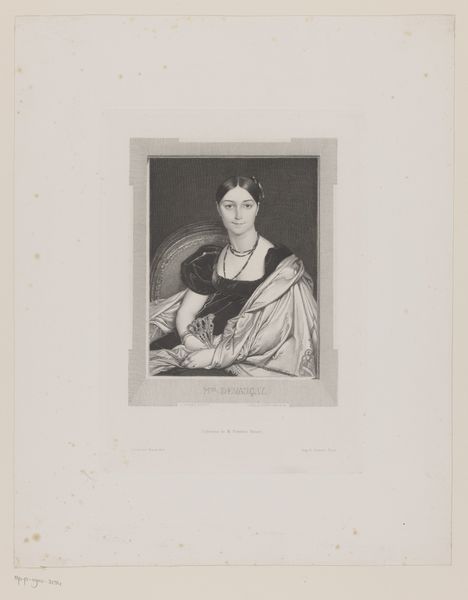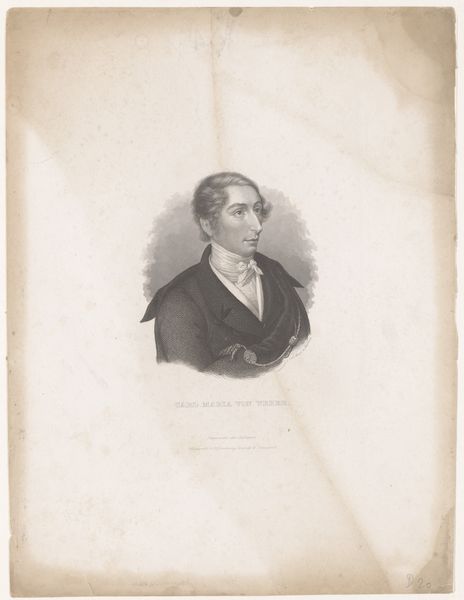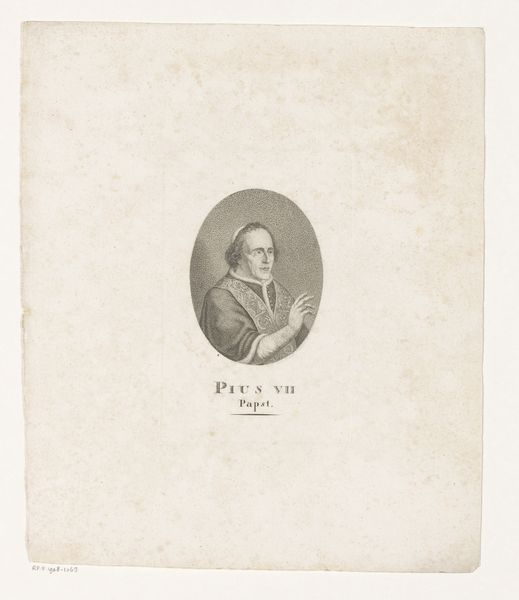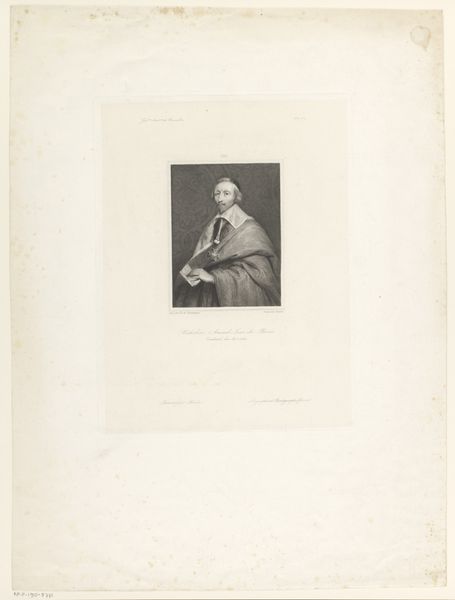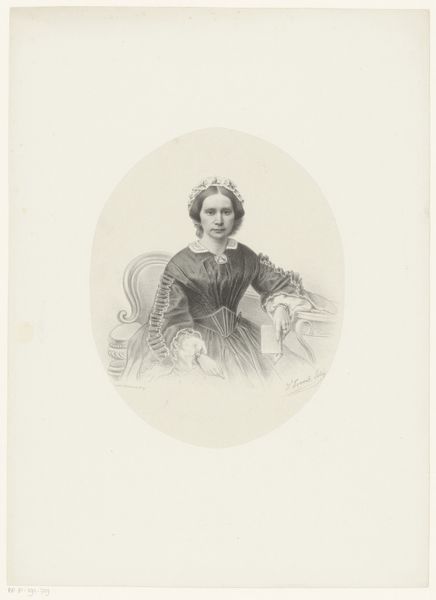
drawing, pencil
#
portrait
#
pencil drawn
#
drawing
#
16_19th-century
#
pencil sketch
#
figuration
#
pencil drawing
#
romanticism
#
pencil
#
realism
Dimensions: height 424 mm, width 311 mm
Copyright: Rijks Museum: Open Domain
Editor: So, here we have Johann Peter Berghaus's "Portrait of an Unknown Woman," created in 1849 using pencil. I find myself drawn to the almost photographic level of detail achieved with such a simple medium. What do you make of this drawing? Curator: I'm immediately interested in the materiality of the work. Pencil, at that time, was becoming increasingly available, a manufactured object used to represent someone, likely from a rising merchant class. The means of production shape our understanding of the subject. How might access to new materials democratize portraiture itself? Editor: That's fascinating! I hadn't considered the socio-economic implications of the pencil itself. So, you're saying the availability of materials influences the art that gets made, and who gets to be represented? Curator: Precisely. This isn’t just about technical skill; it's about the industrial processes that allow this image to exist. It makes me question, was drawing taught, for example, at school, providing working women the ability to support themselves and possibly produce portraits? This challenges notions about the traditional art world. Editor: It really does! The attention to detail on the shawl and the fabric feels less about artistic expression and more about showing off available resources, even. I find the drawing so somber and dignified; yet the method speaks to industrial shifts and a broader reach for artistry in culture. Curator: Absolutely. Considering the labor involved – from pencil production to the artist’s hand – and thinking of who is included, this image opens up interesting ideas of labor, consumerism, class representation and value of artistry itself, defying boundaries separating "high art" from something perhaps more widely available at that time. Editor: It’s changed how I view portraits in general. Thank you. Now I understand that the medium carries just as much weight as the message. Curator: It has shifted how I look at materiality as a method of art, as well. Every line, every stroke with that pencil speaks of that transition, of something beyond the pretty face.
Comments
No comments
Be the first to comment and join the conversation on the ultimate creative platform.
